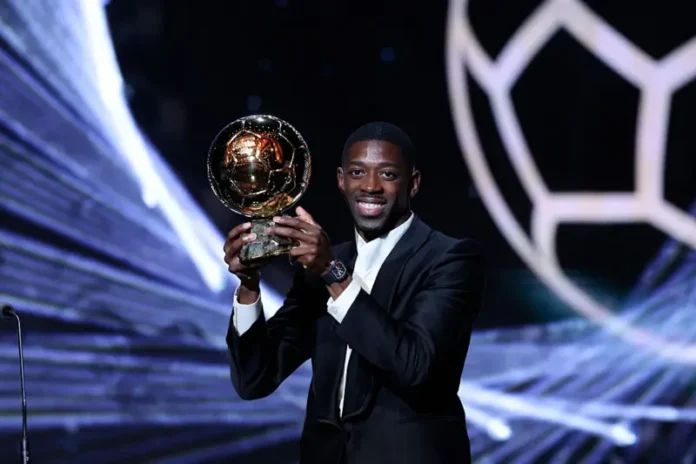Ousmane Dembele was on Monday night unveiled as the 2025 men’s Ballon d’Or recipient, capping a fairy-tale redemption arc for the Paris Saint-Germain and France forward who once symbolized unfulfilled promise.
The 28-year-old, sidelined by a minor hamstring tweak that kept him from the pitch but not the podium, accepted the gleaming orb from Brazilian icon Ronaldinho-himself a 2005 winner-his face a mosaic of disbelief and elation amid a sea of standing ovations.
Dembele’s victory, the first for a French player since Zinedine Zidane in 1998, eclipses a razor-sharp duel with Barcelona’s teenage phenom Lamine Yamal, who settled for second after a blistering campaign that included a domestic treble and Spain’s Nations League triumph.
Voted by an international jury of 100 specialized journalists, the decision underscores Dembele’s pivotal role in PSG’s unprecedented “poker”—Ligue 1, Coupe de France, Trophée des Champions, and a maiden UEFA Champions League crown.
With 33 goals and 20 assists across all competitions, topping Europe’s big-five leagues in chance creation, Dembele’s metamorphosis from erratic winger to lethal No. 10 proved irresistible, his 10.4 attacking sequence involvements per 90 in the Champions League the highest among qualifiers.
The win caps a ceremony rich in French flair: Enrique’s coaching honour, Yamal’s second Kopa Trophy, and Spain’s Aitana Bonmatí securing a third straight women’s Ballon d’Or.
Yet Dembele’s ascent resonates beyond stats—a testament to resilience in a sport that chews up talents.









